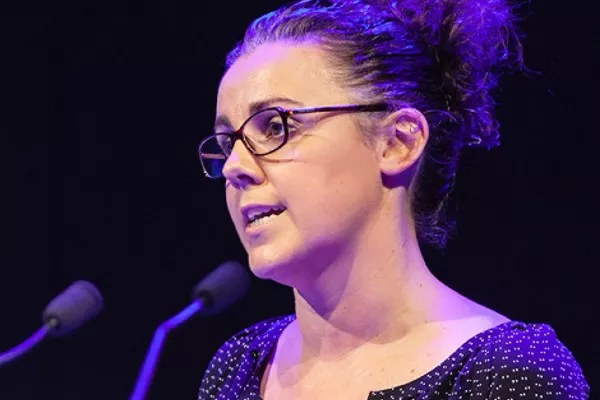
Each year we invest more than £6 million into life-changing diabetes research. This World Kidney Day on 9 March, let’s dive into a brand-new project on kidney research and care that’s just started.
Professor Claire Hills (pictured) is a Professor in Renal Physiology at the University of Lincoln. With our funding she’s working with her PhD student, Paige Phillips, to investigate how to improve treatments for kidney and eye damage, to protect people with diabetes from these complications.
Prof Hills spoke about her diabetes research journey:
"I’ve had a longstanding interest in diabetes and its complications since completing my PhD in 2006. During this time, I studied specifically how kidney cells may lose their ability to “talk” to each other. In 2015 and through the generous support of Diabetes UK, I set up my own lab at the University of Lincoln, to further understand if this cell communication underpins the inflammation which dictates how quickly kidneys are damaged."
Language lessons for kidney cells
Our kidneys play an important part in keeping us healthy by filtering our blood. In people with diabetes, cells in their kidneys can be damaged by high blood sugar levels, which causes inflammation.
Healthy cells can talk to each other via chemical signals, which helps to make sure each cell is doing its job properly.
When kidney cells are inflamed and damaged, this affects the signals they send, or the ‘language' they speak, so other kidney cells can’t understand them as well. These communication problems can then cause further damage to the kidney cells.
This is where Prof Hills comes in. She said:
“My research group has unveiled a distinct role for a group of proteins called connexins in initiating these damaging conversations, ultimately triggering cells to become injured and stop working properly.”
This process also happens in eye cells, which can lead to a complication of diabetes called retinopathy, but researchers have started to develop treatments that block some of the damaging conversations between eye cells.
Prof Hills said:
“Using drugs already in trial for retinopathy, our recent studies have shown that, when we block the bad language of connexins, we see signs of both improved health and kidney function.”
To find out more, she and her PhD student, Paige Phillips, have been working on a new project. They’re listening to how human kidney cells grown in conditions that mimic diabetes talk to each other by investigating the chemical signals, or languages, and seeing if different languages spoken cause cell damage.
Once they know which language the kidney cells are speaking, they’ll give them the new eye treatment. They should then be able to see if this helps to translate what the cells are saying back into the right language, or stops them from speaking all together. This should help them to understand which language is dangerous to kidney cells, and how to stop them from speaking it.
The future of kidney care
Kidney damage is one of the most common complications in people with diabetes, so we urgently need more kidney research like Prof Hills’ project, to find better treatments and to stop damage in its tracks. Prof Hills spoke about some of her next steps, and what she’d like to see in the future:
“Moving forward we’re looking to build on the outcomes of our kidney research studies, to better understand if our findings can be applied in other parts of the body and to treat more complications of diabetes.
“My daily motivation continues to be fuelled by the prospect that my programme of research and the combined efforts of collaboration will help advance our understanding of what initiates and drives kidney damage. One day we hope to find a cure and treatment which is suitable for all of those affected by this debilitating condition.”
Outside of the lab
In her spare time, Prof Hills is passionate about combining good food and drink with cooking, travelling, and interior design.
But back in the lab, research wouldn’t be possible without our supporters, whose generosity helps Prof Hills and her devoted colleagues to make important discoveries which transform the lives of people with diabetes.
“With your support I’ve been able to establish a thriving collaborative team in the Joseph Banks Laboratories at the University of Lincoln, bringing together all kinds of scientists, to work together and better understand how complications of diabetes develop, in a bid to help find a cure and improve the lives of people with diabetes.”
Find out more about the research projects we’re funding here.
